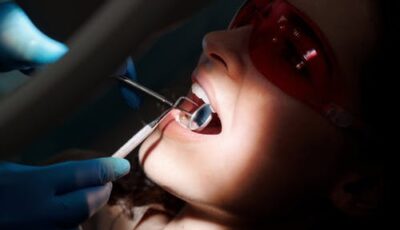
Sleep apnea is a common and potentially serious sleep disorder affecting millions worldwide. If left untreated, it can lead to various health problems, including heart disease, high blood pressure, and daytime fatigue. While several treatment options are available, some individuals may be concerned about the cost of addressing their sleep apnea. This article will explore sleep apnea, why it must be treated, and affordable solutions for managing it.
What Is Sleep Apnea?
Sleep apnea is a sleep disorder characterized by interruptions in breathing during sleep. These interruptions, known as apneas, can occur multiple times throughout the night and may last seconds to minutes. There are three primary types of sleep apnea:
- Obstructive Sleep Apnea (OSA): This is the most common form of sleep apnea and occurs when the muscles in the throat relax excessively, causing a partial or complete airway blockage.
- Central Sleep Apnea: This less common form of sleep apnea is related to a problem with the brain’s respiratory control center, which fails to send the appropriate signals to the muscles that control breathing.
- Complex/Mixed Sleep Apnea: Some individuals may experience a combination of both obstructive and central sleep apnea, known as complex or mixed sleep apnea.
The common symptoms of sleep apnea include loud snoring, choking or gasping for air during sleep, excessive daytime sleepiness, difficulty concentrating, and morning headaches. Sleep apnea can occur in individuals of all ages, but certain factors, such as obesity and a family history, may increase the risk.
Technological advancements make diagnosing sleep apnea from the comfort of home possible. A well-conducted sleep apnea home test can provide accurate results comparable to lab sleep tests at a fraction of the cost. They’re comfortable and convenient, saving you a sleep center trip.
Why Does It Have to Be Treated?
Sleep apnea should not be ignored, as it can have significant health consequences. Here are some reasons why treating sleep apnea is crucial:
- Cardiovascular Health: Untreated sleep apnea increases the risk of high blood pressure, heart disease, and stroke. The repeated drops in oxygen levels and disrupted sleep patterns can strain the cardiovascular system.
- Daytime Functioning: Sleep apnea can lead to excessive daytime sleepiness, impairing daily activities, including work and driving. This can result in accidents and decreased quality of life.
- Mental Health: Sleep apnea has been linked to mood disorders such as depression and anxiety. Individuals with untreated sleep apnea may experience irritability, mood swings, and decreased overall well-being.
- Cognitive Impairment: Chronic sleep apnea can lead to cognitive deficits, including memory problems, difficulty concentrating, and reduced cognitive function.
- Other Health Issues: Sleep apnea has been associated with an increased risk of diabetes, weight gain, and complications in individuals with preexisting medical conditions.
Given these potential health risks, it is essential to seek treatment if you suspect you have sleep apnea or have been diagnosed with the condition.
Affordable Solutions for Sleep Apnea
Managing sleep apnea doesn’t have to break the bank. Several cost-effective solutions are available to help individuals address this condition:
1. Lifestyle Modifications
- Weight Management: Losing excess weight, if applicable, can significantly improve sleep apnea symptoms. Even a modest weight reduction can make a difference.
- Positional Therapy: Some individuals experience sleep apnea primarily when sleeping on their back. Sleeping on your side may help alleviate symptoms, and using a body pillow or positional devices can assist in maintaining the side-sleeping position.
- Avoiding Alcohol and Sedatives: Alcohol and sedatives relax the muscles in the throat, potentially worsening sleep apnea. Reducing or eliminating their consumption, particularly before bedtime, can be helpful.
- Regular Exercise: Regular physical activity can improve overall health and reduce the severity of sleep apnea. Aim for at least 30 minutes of moderate exercise most days of the week.
2. Oral Appliances
These dental appliances are designed to reposition the lower jaw and tongue to help keep the airway open during sleep. MADs are less expensive than continuous positive airway pressure (CPAP) machines and may suit those with mild to moderate sleep apnea.
3. Positional Therapy Devices
Wearable devices can provide feedback or vibrations when you roll onto your back during sleep. These devices can help train you to sleep in a position that reduces sleep apnea events.
4. Home Sleep Apnea Tests (HSAT)
Sometimes, your healthcare provider may recommend a home sleep apnea test. These portable monitoring devices are more cost-effective than in-lab polysomnography (a comprehensive sleep study) and can provide valuable diagnostic information.
5. CPAP Machines
Continuous Positive Airway Pressure (CPAP) therapy is one of the most effective treatments for sleep apnea. While new CPAP machines can be expensive, some individuals opt for used or refurbished machines, which can be more affordable. Ensuring the used machine is thoroughly cleaned and properly adjusted to your needs is essential.
Sleep centers offer professional solutions, but the cost can be a deterrent. However, if you search wisely, even these centers offer budget solutions. A reputable sleep apnea center in Missouri comes to mind, which offers reasonable payment plans and educates its patients about maintaining a budget-friendly, effective regimen.
The Impact of Snoring on Relationships
While the physical health effects of sleep apnea are well-known, its impact on emotional health and relationships is often overlooked. Snoring, a common symptom of sleep apnea, can cause significant strain on relationships. Click here to learn more about how snoring affects relationships and possible solutions.
Several methods, from lifestyle changes to snore-reducing nasal strips and oral appliances, can help reduce snoring. Coupled with effective communication, these solutions can help mitigate the impact of snoring on relationships.
Conclusion
Despite the challenges posed by sleep apnea, affordable and effective solutions are within reach. Several options exist, from lifestyle modifications and over-the-counter therapies to considerate sleep centers and home tests to manage sleep apnea without putting a strain on your wallet. The key factor is being proactive: don’t let sleep apnea affect your health and relationships. Tackle it head-on using the solutions that suit your lifestyle and budget.






